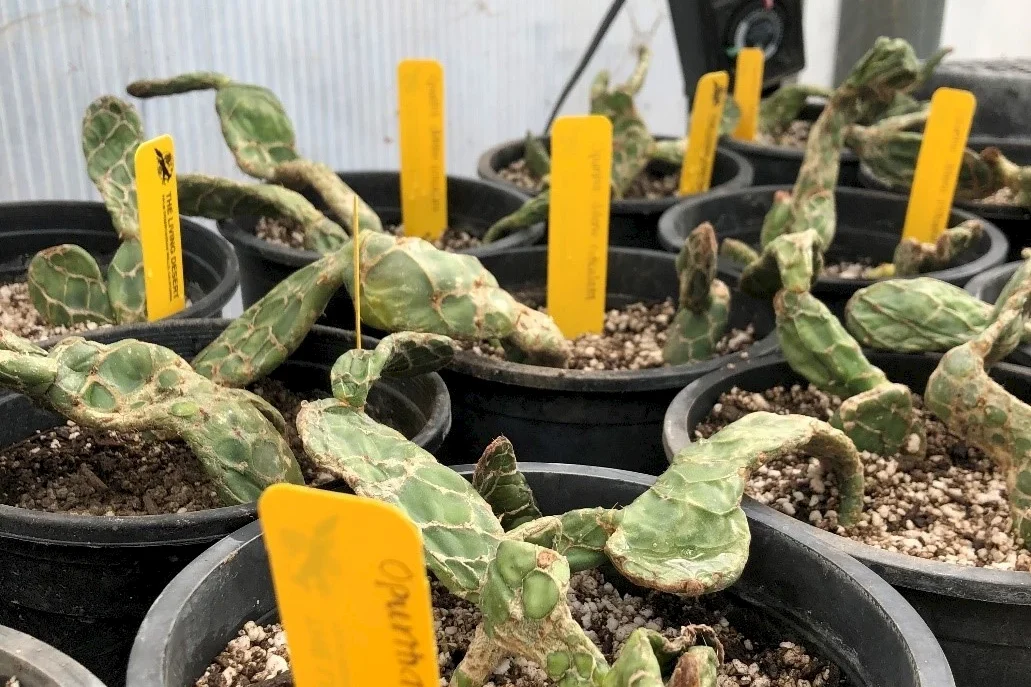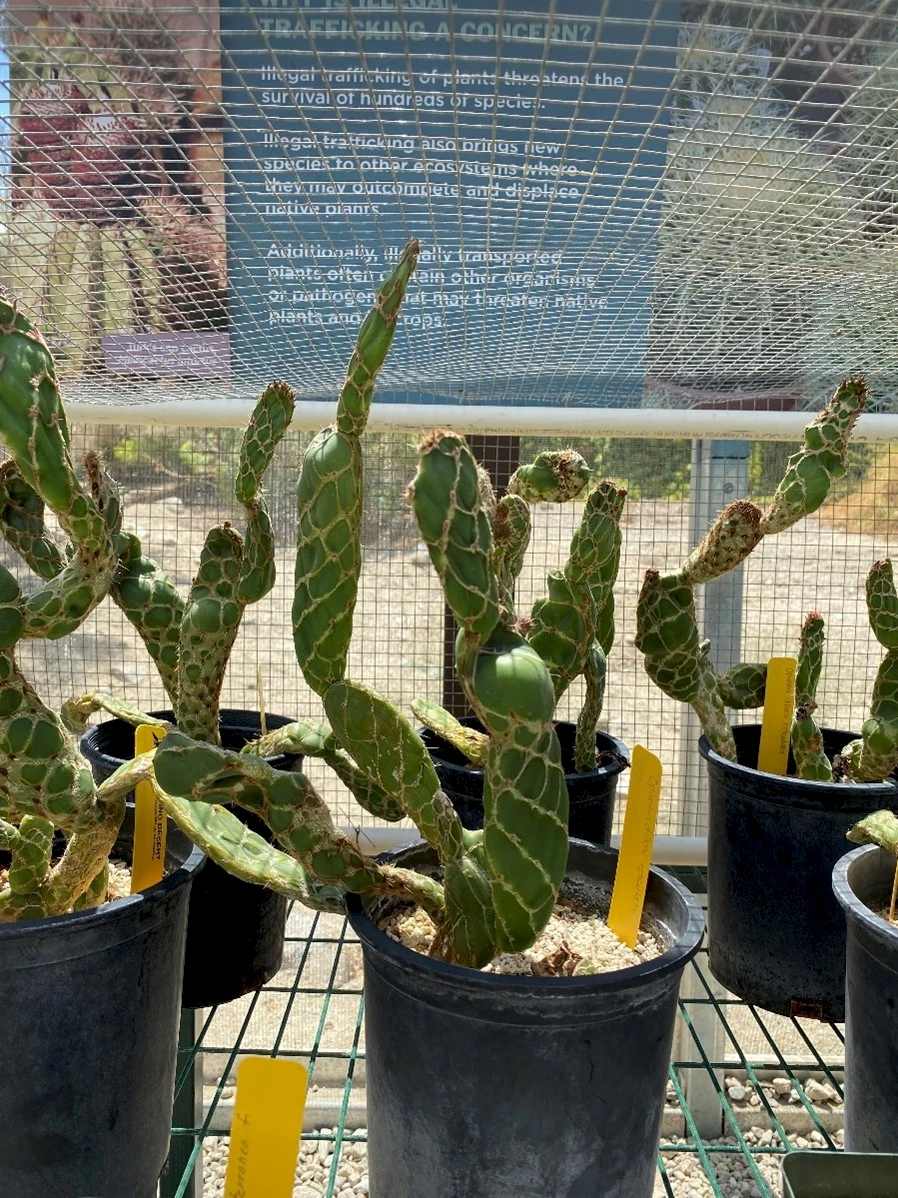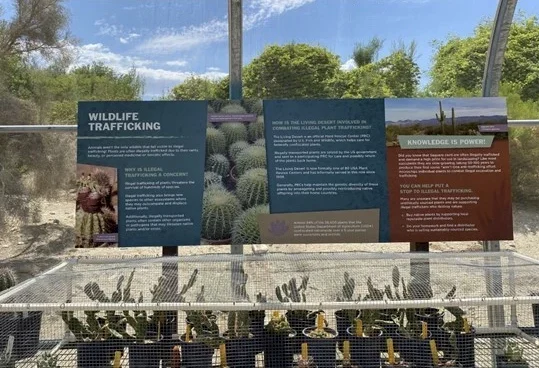By: Natalie Gonzalez, Assistant Conservation Scientist July 19, 2021
You may be aware that a walk through the Zoo will put you face to face with animals that are imperiled by wildlife poaching and trafficking, but did you know, a walk through our gardens will do the same? While we are largely aware that animals are commonly poached for parts that are valued for perceived medicinal values or aesthetic qualities, you may not know that plants face similar threats in the wild.
Next to orchids, Cacti and succulents are the most trafficked plants. Of the ~1,480 cacti species, 1/3 are threatened with extinction, and half of these species are directly threatened by poaching. Their uniqueness, beauty and hardy adaptations make them highly sought after among plant collectors and plant parents alike!
While only native to the Americas, cacti are sought after around the world, which is a big market. Plant collectors looking to profit off this market sometimes collect thousands of plants from just one area, which threatens to wipe out entire populations. In cases where plants are endemic to one area, being found only there, or are otherwise rare, the risk of extinction from these collections is high. Unfortunately, rare is what many collectors are willing to pay big for. The increased value associated with plant rarity helps drive the illegal market that threatens the existence of countless species in the wild.
A walk through the Desert Plant Conservation Center (DPCC) at The Living Desert will reveal an assortment of cacti and succulents that were confiscated from traffickers. As a Plant Rescue Center, we work with the United States Fish and Wildlife Service to care for these confiscated plants until their country of origin asks for them. The plants you see in the DPCC arrived to us shriveled and barely holding onto life after being smuggled into the US from coastal Italy. With prompt potting and gentle nourishing, all but one returned to life. Sadly, the story is hardly the same for countless other poached plants. As cacti and succulents are typically slow-growing plants, they will spend decades to over a hundred years growing, just to be uprooted and tossed in a bag to begin a journey that only a fraction of the plants will survive. The saguaro, for example, takes ~70 years to grow its first arm, and with this iconic look being sought after, the older the plant, the larger the target.
Given the threat of illegal plant trafficking, you may be asking what can you do? Since 2019, the market for indoor plants has increased, since becoming a plant parent is fun and exciting! There is always a new, interesting species to add to your home. When purchasing a unique plant, the fact that it may have been illegally extracted from the wild may not be a thought that crosses the everyday plant purchaser’s mind. Yet, it must be something we each consider. Making sure plants are ethically sourced is a critical part of the plant purchasing process.
When purchasing plants, asking nursery staff where their plants are sourced is a great start. Questioning where your plants come from and encouraging your friends and family to do the same informs shop owners that their customers care about where and how their plants are sourced and are unwilling to engage in illegal trafficking. Ripples make waves. Our actions can help protect the existence of threatened plant species in their natural habitats and the species that depend on them.







